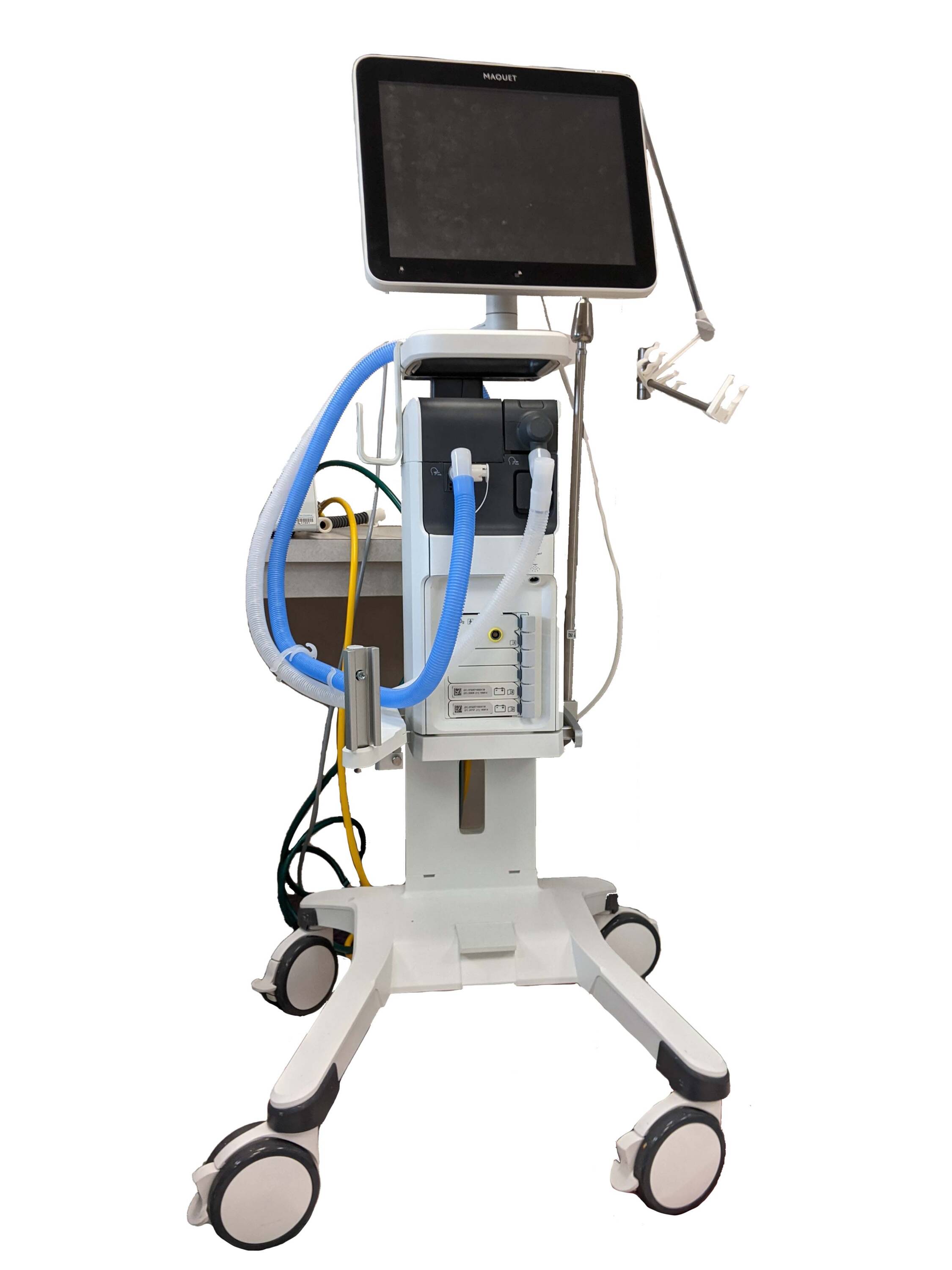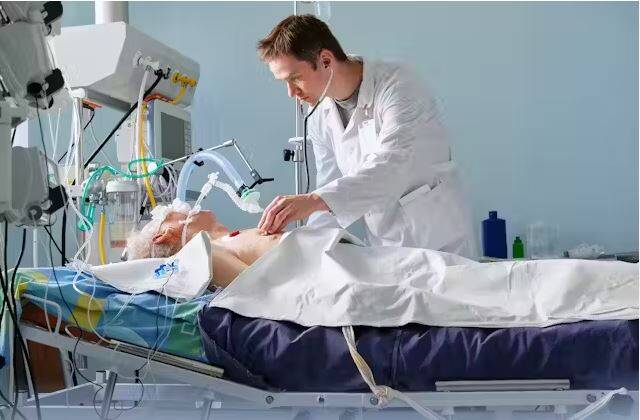
Everyone would have come into a situation where a friend or family member is admitted in ICU and doctors tells - we need to put the patient on ventilator. Its really scary for anyone to hear the word ventilator. As a doctor, I have seen people going clueless about what next ? is it the end ? is there any other way ? give us half day time to decide ! do we have an alternate therapy ? are commonly seen. Understanding the basics of this wonderful life saving machine would help us in making crisp decisions in hard times.
1. What is a ventilator ?
Like we have a ventilator in our rooms / house for better air movement ; we have a machine in ICU which better oxygenates your lungs. Such a easy way to understand right ! Doctors insert a tube into lungs and the tube is connected to ventilator. The ventilator settings are adjusted for right amount of air to be delivered. Ventilators are used in ICU / CCU only as they require constant monitoring and adjustments.

2. How serious is being put on a ventilator ?
Here are two situations where ventilators are used. In anesthesia and intensive care units (ICU). If patient needs general anesthesia your doctor puts you on ventilator until surgery is over and consciousness is regained back. Second situation - major illness like brain infection, stroke, heart problems, pneumonia, fluids in lungs, major accidents, seizures, asthma, bronchitis etc. patient may sometimes need ventilator if his oxygenation to lungs is not good.
3. Price of ventilator in ICU ? Why so costly ?
Ventilator is a highly advanced electronic machine costing up to 25 - 30 lakh rupees. Maintenance, cleaning after each patient's use and repairs are expensive. Apart from this it requires highly skilled, trained and experienced doctors and nursing officers. The machine also needs temperature regulation and constant supervision. In a hour sometimes we have to adjust settings 3-4 times. Hence, the ventilators are expensive.

4. What is the ventilator working principle ?
Ventilator has multiple modes. The ventilator one end is connected to central oxygen supply and the other end to patient. We set multiple parameters based on patients disease and ventilator delivers oxygen in right quantity, at right pressure and right breaths per minute. Sometimes, we allow ventilator to support patients own breathing efforts, sometimes we completely take control over patients. When patient is recovering we reduce the support from ventilator and eventually wean off so that patient can breathe himself.
5. What is the use of ventilator ?
Its used on every age group from new born to elderly. It mainly supports the patient by delivering air and oxygenates the lungs. If the disease of patient is making his blood oxygen levels go down, and difficulty in breathing Eg : Pneumonia, fluids in lungs, paralysis etc. the ventilator is needed.
6. What are the chances of recovery from ventilator ?
If the patient is put on ventilator for some surgery and anesthesia purposes then chances of recovery are very high. However, all those undergoing surgery may not come out of ventilator early. Some may need 4-5 days. If the indication of ventilator was for some disease like stroke / pneumonia then, until the disease recovers we cannot remove the ventilator. Once the patient starts improving we can reduce the dependency and eventually wean off from ventilator.

7. How long can a person be on ventilator in an ICU ?
Shortest period is for few hours during anesthesia. In diseases, patient may become dependent on ventilator for days, weeks and even months. There are cases where in patient has been on ventilator for more than a year. If the patient has slow recovery or irreversible damage to heart , lung or brain then patient may need long time ventilator support.
8. When will doctor remove ventilator ?
Once patients shows recovery with treatment and his lung parameters improve, your doctors start a process called as weaning. It means they reduce the supports of ventilator and allow patient to take his own breath. If patient fails to do so, ventilator backs up. The process of weaning make take few hours to days. Once patient is able to take good breaths and blood oxygen level improves without much support from ventilator - the ventilator is removed. However, some people may require repeat ventilator support if they fail to improve after weaning.
9. What are the signs of death on ventilator ?
There are no such signs of death. There are clinical and lab parameters like blood, urine, ABG which are indicators of worsening over ventilator. Serially your ICU doctors and nurses monitor these. If there are frequent fluctuations in blood pressure, heart rate, high oxygen concentration requirement, high pressure requirements, persistent unconsciousness, difficulty in breathing when supports are reduced are clues towards worsening or long term dependency. In spite of best protocolized treatment the outcomes may not be rewarding.

10. Home Ventilator ? What is this ?
In developed countries with chronic lung problems and irreversible neurological damages - a patient may need long term ventilator. In such cases , dedicated nursing and doctors team create a conducive environment similar to ICU in house and ventilator support is given. However, this type of facility requires professional expertise and expensive.
11. Can ventilator be used for patient in hospital wards ?
No, Ventilator is an advanced device requiring skill and vigilance. They cannot be used in wards. Wards lack infrastructure and manpower required by ventilator. Infection control and asepsis cannot be maintained in regular hospital wards.
The take home message would be ; ventilator is a life saving machine, which requires skilled and trained staff to manage. very sick patients need its support for improvement and recovery. Its not that when doctor says there is need for ventilator - its end of everything. Decisions for ventilator and further treatment should be taken as early as possible or advance consent can be given. I, Dr. Chetan K Ganteppanavar , Consultant Physician and Intensivist (Suchirayu Hospital, Hubli, Karnataka, India) was able to clear most of the doubts on ventilator. For further information and opinion please visit / contact Kalpana Multi-speciality Clinic, Hubli, India. Mob : 814-714-8724.
